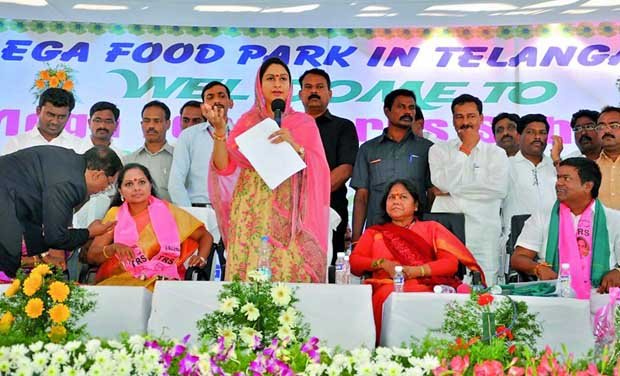Inside BENEO’s new pulse plant: pioneering sustainable protein from faba beans
According to senior official with the Harsimrat Kaur Badal-led ministry till 2020 all MoFPI’s pending projects are expected to become operational.
Currently, only nine mega food parks are functional. Six are expected to be up and running by April 2018, and a dozen more are expected to become functional next year.
The first deadline was between 2012 and 2017.It was within NMFP that MoFPI had set the original target to operationalise the 42 mega food parks.
However, overall, the mega food park scheme, which commenced amidst a great deal of fanfare and was expected to transform the food processing industry pan-India, hasn’t taken off along the expected lines, despite the efforts.
Upon assuming office as minister of food processing industries, Badal revised the target for the operationalisation of all 42 mega food parks to 2018.
However, this was followed by a delay by another year, and now the ministry expects all of them to be up and running two years hence.
As per MoFPI’s status report, four mega food parks are complete.
S S Thorat, head, department of food science and technology, Mahatma Phule Krishi Vidyapeeth, Rahuri, said, “The mega food park scheme, which was supposed to be a boon for the food processing sector, really seems to be a failure to some extent, due to the lack of proper planning.”
The project is unviable, and experts have attributed its lack of sustainability to the high rate of taxes levied on processed foods.
According to the report published by ICRIER for MoFPI, getting the necessary clearances and approvals like power, water, the environment, etc., from the state governments, the issues faced in getting units/in entering agreements with food processors, issues with financial institutions (such as the high interest rate, the collateral required, etc.), the issues faced while entering agreements with farmers for the supply of raw materials, issues regarding the acquisition of contiguous land, issues regarding the amount of loan applied for from, and actually sanctioned by, the financial institution, issues with respect to the selection criteria adopted by MoFPI and political interference are some of the reasons for the delay in project implementation.
Interestingly, the delay on MoFPI’s part in releasing the grant was also one of the key issues highlighted in the study.

